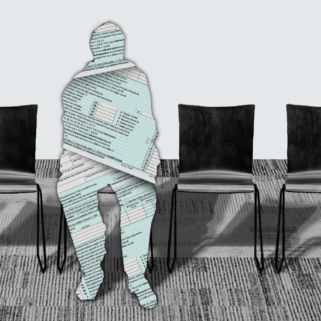At first glance, the 85-year-old members of the Class of 1937
don’t look like rabble-rousers. Twenty-five years after their
graduation, 88 percent were happily married, 85 percent were
regular churchgoers, and 71 percent were registered Republicans;
they believed in fighting for their country, owning two cars,
and the fact that they would be bald in ten years. By 1999,
not much had changed. But in October of that year, the Class
of 1937 took up arms against its alma mater. Why are these rebels
not the peacefully retired grandfathers they seemed destined
to become?
The answer: "Phelpsgate." In September 1999, several
hundred copies of Yale’s conservative student publication Light
& Truth were removed from freshman mailboxes. Playing off
juicy allegations of illegal acts by Yale’s freshman counselors
and an administration cover-up, the name has stuck. As the furor
died down and the administration rejected L&T’s grievance
petition, it soon seemed as if everyone had forgotten. However,
"Phelpsgate" had just begun to captivate the minds
of the men of the Class of 1937. Sixty-two years away from Yale
had done nothing to dampen their fervor or their memory. They
were old, but not too old to take on the system.
One 38-page report, a flurry of correspondence, and a year and
a half later, the Class of 1937 is still standing firm. Although
some in their ranks are as tired of the issue as most students,
others are still bandying about terms like "pc Police"
and speculating about freshman counselor "spy networks"
run out of Dean Trachtenberg’s office. According to a former
L&T’ staff member, the magazine and the alumni soon found
a mutually agreeable division of labor in the fight: "We
[L&T’] provided the information, and they fought the battles
for us." Though unsuccessful in helping the editors receive
compensation for damages or having "formal sanctions"
brought against the implicated freshman counselors and administrators,
the alumni still seem determined to fight to the death. The Class
that Levin has called "Yale’s most devoted" has filed
a petition with the aya and is calling for a review of the University’s
free speech regulations.
"As members of the Class of 1937, we are old," said
corresponding secretary John W. Field. "We believe in tradition
and freedom . . . [and] we love Yale." On the surface,
the Class of 1937 perceived a threat to intellectual freedom
on campus, especially for conservative views. However, their
actions betray a deeper fear that, as the years go by, the administration
is forgetting the Old Yale. The decline of conservative groups,
which they see as one of the last bastions of this spirit on
campus, is particularly worrisome to men who may not be around
to defend the Yale they love much longer. By not punishing those
involved in confiscating L&T’, it seemed as if University
officials were not only attacking the rights of a conservative
publication to challenge the administration, but the values and
rights of her own alumni as well.
"[W]e had a grand time here together and we now march out
and sit on the sidelines and exercise our almost divine right
to grumble at the changes that will doubtless begin the instant
our backs are turned," former Yale president James Rowland
Angell wrote in the History of the Class of 1937. "[O]r
we might make the class of 1937 completely immortal."


